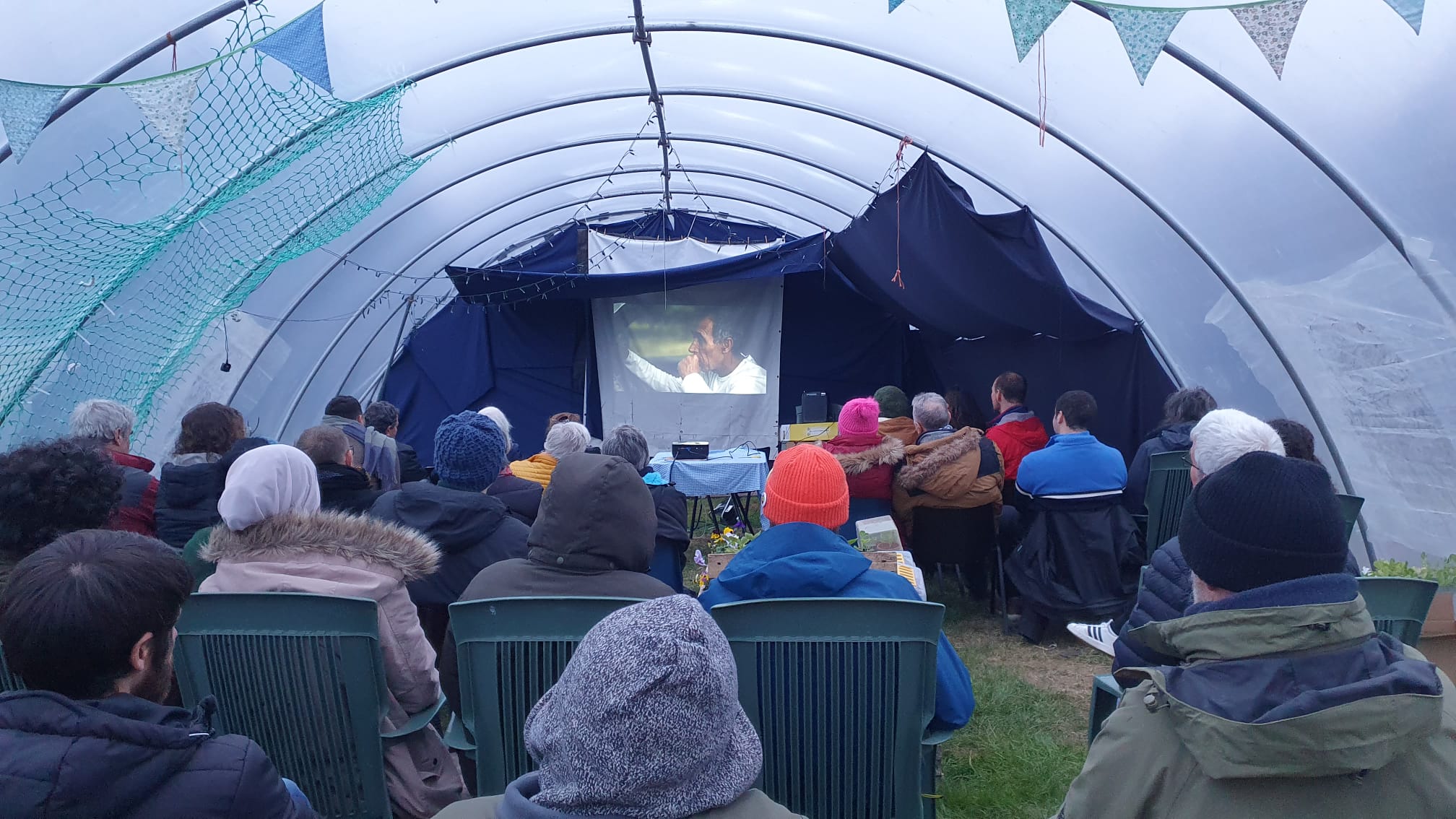Community screenings present a unique opportunity to introduce local publics to lesser-known film cultures. They provide a framing through which foreign cinema makes sense in relation to local concerns as well as broader social and political issues. Close to St Andrews, Dundee offers a variety of formal and informal spaces for community screenings.
Film studies lecturer Dr Viviane Saglier contributed to two events around Palestinian cinema in Spring 2023. At the occasion of the Dundee Women’s Festival and the celebration of International Women’s Day, Viviane programmed the film 3000 Nights (2015) by veteran Palestinian female filmmaker Mai Masri, in collaboration with the Dundee-Nablus Twinning Association (DNTA) and Dundee Contemporary Arts (DCA). The film tells the story of a newlywed Palestinian teacher who is wrongfully arrested by the Israeli occupation army. In prison, she realizes she is pregnant and decides to raise the child behind bars. The film depicts feminist, anticolonial resistance under incarceration and testifies to the sensitivity and creativity with which Palestinian fiction cinema deals with complex topics. The screening was followed by a discussion between Viviane and Dr Malaka Shwaikh, associate lecturer in International Relations at the University of St Andrews, moderated by DNTA convener Mary McGregor.
In April, Viviane programmed and organized a community screening of Palestinian filmmaker Jumana Manna’s Foragers (2022). The experimental documentary examines how traditional food practices that sustain Palestinians’ social and historical relationships with the land are hampered by Israeli colonial laws. The film was fittingly screened in the polytunnel of the Victoria Community Garden, a space dedicated to developing food sovereignty which has become a haven for new immigrants and long-time Dundonians alike. The screening was preceded by a potluck (food sharing) and followed by a community-led discussion around the film. Topics ranged from what foraging means in Scotland to colonial land appropriation, and from sensorial approaches to cinema to cinematic strategies of framing political context. The event was made possible with the support of the Victoria Community Garden, the DNTA, and the Scotland-based film association Take One Action.
Community screenings consolidate existing networks of friendship and enable the creation of new publics. These two events located Palestinian cinema at the crossroads of feminist cinematic histories, international relations, and ecological concerns, encouraging local audiences and scholars alike to consider the urgency of these intersections and the possibility of new collaborations.

